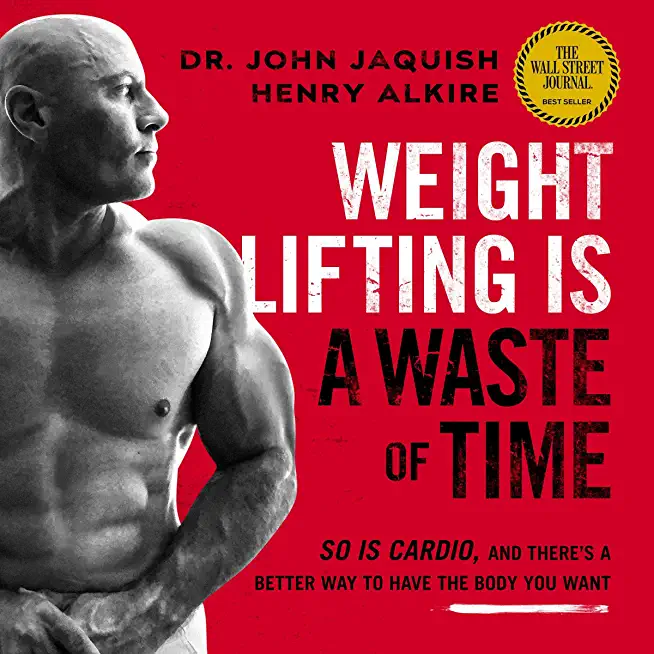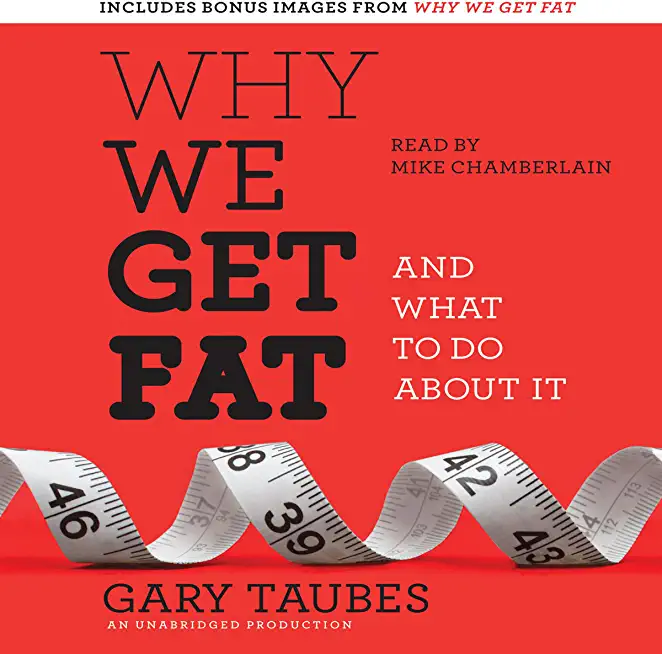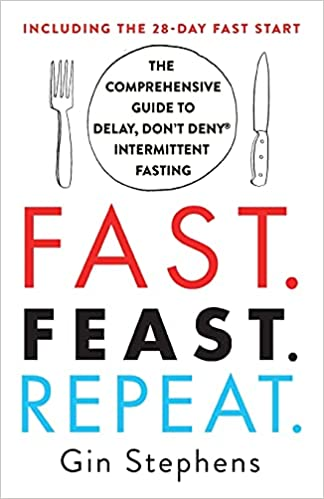What are you reading now?
-
@kluurs said in What are you reading now?:
Finished

Be really interested to hear your thoughts on this one.
-
@kluurs said in What are you reading now?:

So, why is weight lifting a waste of time? And also cardio?
@horace
The author sites several studies that suggest resistance training is actually a more effective strategy for building muscle than weight lifting. His goal is creating muscle mass - and cites studies that cardio won't aid the goal of lean muscle mass. He also is selling equipment for resistance training - so a good marketer.Of course, every runner will cite studies showing the opposite. I actually have lifted for most of my life. The one thing that is interesting is the suggestion that one should focus on the amount of time under load as opposed to the number of repetitions. Thus, one should aim at muscle fatigue rather than just rote repetitions.
-
@horace
The author sites several studies that suggest resistance training is actually a more effective strategy for building muscle than weight lifting. His goal is creating muscle mass - and cites studies that cardio won't aid the goal of lean muscle mass. He also is selling equipment for resistance training - so a good marketer.Of course, every runner will cite studies showing the opposite. I actually have lifted for most of my life. The one thing that is interesting is the suggestion that one should focus on the amount of time under load as opposed to the number of repetitions. Thus, one should aim at muscle fatigue rather than just rote repetitions.
@kluurs said in What are you reading now?:
@horace
The author sites several studies that suggest resistance training is actually a more effective strategy for building muscle than weight lifting. His goal is creating muscle mass - and cites studies that cardio won't aid the goal of lean muscle mass. He also is selling equipment for resistance training - so a good marketer.Of course, every runner will cite studies showing the opposite. I actually have lifted for most of my life. The one thing that is interesting is the suggestion that one should focus on the amount of time under load as opposed to the number of repetitions. Thus, one should aim at muscle fatigue rather than just rote repetitions.
Interesting. I remember a "super slow" theory of weight lifting, where you spend 30 seconds per rep. That idea has been around for a long time, but it's never been well respected. I think enough people tried it in the free weight world that if it worked well, it would have been recognized as useful.
I think I'll get that Gary Taubes book.
-
@kluurs said in What are you reading now?:
@horace
The author sites several studies that suggest resistance training is actually a more effective strategy for building muscle than weight lifting. His goal is creating muscle mass - and cites studies that cardio won't aid the goal of lean muscle mass. He also is selling equipment for resistance training - so a good marketer.Of course, every runner will cite studies showing the opposite. I actually have lifted for most of my life. The one thing that is interesting is the suggestion that one should focus on the amount of time under load as opposed to the number of repetitions. Thus, one should aim at muscle fatigue rather than just rote repetitions.
Interesting. I remember a "super slow" theory of weight lifting, where you spend 30 seconds per rep. That idea has been around for a long time, but it's never been well respected. I think enough people tried it in the free weight world that if it worked well, it would have been recognized as useful.
I think I'll get that Gary Taubes book.
@horace said in What are you reading now?:
Interesting. I remember a "super slow" theory of weight lifting, where you spend 30 seconds per rep. That idea has been around for a long time, but it's never been well respected. I think enough people tried it in the free weight world that if it worked well, it would have been recognized as useful.
A friend of mine runs a gym in DC that specializes in that. It seems to work for them, but they also do a little bit of everything, not just the slow rep stuff.
Anyway, whatever. The best exercise you can do is whatever you're actually going to want to do on a habitual basis.
-
@horace said in What are you reading now?:
Interesting. I remember a "super slow" theory of weight lifting, where you spend 30 seconds per rep. That idea has been around for a long time, but it's never been well respected. I think enough people tried it in the free weight world that if it worked well, it would have been recognized as useful.
A friend of mine runs a gym in DC that specializes in that. It seems to work for them, but they also do a little bit of everything, not just the slow rep stuff.
Anyway, whatever. The best exercise you can do is whatever you're actually going to want to do on a habitual basis.
@aqua-letifer said in What are you reading now?:
The best exercise you can do is whatever you're actually going to want to do on a habitual basis.
To a point. I redd a pretty convincing argument that emphasizes the importance of balance. That the tendency is to put more energy into muscles that hurt less and give more productive results, with the result that the weaker muscles get shorter and shorter shrift.
-
@aqua-letifer said in What are you reading now?:
The best exercise you can do is whatever you're actually going to want to do on a habitual basis.
To a point. I redd a pretty convincing argument that emphasizes the importance of balance. That the tendency is to put more energy into muscles that hurt less and give more productive results, with the result that the weaker muscles get shorter and shorter shrift.
@catseye3 said in What are you reading now?:
@aqua-letifer said in What are you reading now?:
The best exercise you can do is whatever you're actually going to want to do on a habitual basis.
To a point.
No, always. My point was pragmatic, not scientific.
There's a ton of great information out there about ideal exercises for those of certain ages, body types, and physical strengths and constraints. The advice you just posted was good, for example. But for every one thousand people who read that kind of article, agree with it, and share it with friends, one out of that thousand actually puts that information into habitual practice.
I don't care how good the advice is or what you think your discipline level is, if you don't like doing the activity, then you will very quickly burn out.
Go out, have fun with being active, and if you ever get to a point where that becomes habitual, then maybe start caring about what the advice columns say. Optimize your fitness activities after you actually have some as part of your daily routine.
-
@catseye3 said in What are you reading now?:
@aqua-letifer said in What are you reading now?:
The best exercise you can do is whatever you're actually going to want to do on a habitual basis.
To a point.
No, always. My point was pragmatic, not scientific.
There's a ton of great information out there about ideal exercises for those of certain ages, body types, and physical strengths and constraints. The advice you just posted was good, for example. But for every one thousand people who read that kind of article, agree with it, and share it with friends, one out of that thousand actually puts that information into habitual practice.
I don't care how good the advice is or what you think your discipline level is, if you don't like doing the activity, then you will very quickly burn out.
Go out, have fun with being active, and if you ever get to a point where that becomes habitual, then maybe start caring about what the advice columns say. Optimize your fitness activities after you actually have some as part of your daily routine.
@aqua-letifer said in What are you reading now?:
No, always. My point was pragmatic, not scientific.
I agree that it's the best point to make.
For some reason the easiest sort of exercise for me to stick to is walking up hills. (I could stick with walking on flat surfaces too, but that is truly a waste of time.) It hurts, but not like running or cycling. I used to live on top of a big hill and did it every day for years. My weight stayed at a good spot for those years. Then I moved 20 miles away and without the hill, I stopped exercising, and gained many pounds. I've recently started driving back to the hill every day.
-
@catseye3 said in What are you reading now?:
@aqua-letifer said in What are you reading now?:
The best exercise you can do is whatever you're actually going to want to do on a habitual basis.
To a point.
No, always. My point was pragmatic, not scientific.
There's a ton of great information out there about ideal exercises for those of certain ages, body types, and physical strengths and constraints. The advice you just posted was good, for example. But for every one thousand people who read that kind of article, agree with it, and share it with friends, one out of that thousand actually puts that information into habitual practice.
I don't care how good the advice is or what you think your discipline level is, if you don't like doing the activity, then you will very quickly burn out.
Go out, have fun with being active, and if you ever get to a point where that becomes habitual, then maybe start caring about what the advice columns say. Optimize your fitness activities after you actually have some as part of your daily routine.
@aqua-letifer said in What are you reading now?:
I don't care how good the advice is or what you think your discipline level is, if you don't like doing the activity, then you will very quickly burn out.
Can't argue with that!
Optimize your fitness activities after you actually have some as part of your daily routine.
We probably more or less agree. I said 'to a point' because it is feasible that you could decide to go all out for a certain sport that puts uneven emphasis on one set of muscles over others -- baseball pitcher or archery, for instance -- and as one set of muscles grows stronger, you call on them to do more and more work and the lesser emphasized muscles atrophy. It may transpire that optimizing your activities may come too late, or require twice the work to redress the balance that you'd need otherwise.
Better to keep a weather eye on the whole system from the get-go.
-
I have never exercised as much as an adult as I have since I rediscovered cycling, and the only reason is because I enjoy it.
Archery was great fun, but I looked at the physique of the people who were good at it at the club, and I figured it probably wasn't much good at keeping people fit and healthy.
-
I just thought of an example. I'm drawing this out of left field and could be totally wrong, but maybe it will make sense to you (Aqua) or Phibes.
When you ride a bike, isn't one style of riding to work the legs, but pretty much lean on the handlebars? Would this not eventually result in a weakened core?
Just blue skying here.
-
I don't know much about all that stuff, but cycling does exercise your core. Your legs aren't working in isolation, although most of the work is being done by them. You feel it elsewhere.
If what you're referring to is leaning on the handlebars when you stand up and peddle, then no, that really exercises everything. It's bloody hard work doing it for any length of time.
-
The best full body cycling workout is when you "plank":
Link to videoDoing it downhill is one thing, but the best plankers do it uphill.
-
You wouldn't want to hit a big pothole doing that

-
I just thought of an example. I'm drawing this out of left field and could be totally wrong, but maybe it will make sense to you (Aqua) or Phibes.
When you ride a bike, isn't one style of riding to work the legs, but pretty much lean on the handlebars? Would this not eventually result in a weakened core?
Just blue skying here.
@catseye3 said in What are you reading now?:
I just thought of an example. I'm drawing this out of left field and could be totally wrong, but maybe it will make sense to you (Aqua) or Phibes.
When you ride a bike, isn't one style of riding to work the legs, but pretty much lean on the handlebars? Would this not eventually result in a weakened core?
Just blue skying here.
Cycling isn't far and away the best core workout, but yes, it does work your core.
It's not like on a stationary bike, and you don't turn with your hands or arms. Not really, anyway.
-
@aqua-letifer said in What are you reading now?:
No, always. My point was pragmatic, not scientific.
I agree that it's the best point to make.
For some reason the easiest sort of exercise for me to stick to is walking up hills. (I could stick with walking on flat surfaces too, but that is truly a waste of time.) It hurts, but not like running or cycling. I used to live on top of a big hill and did it every day for years. My weight stayed at a good spot for those years. Then I moved 20 miles away and without the hill, I stopped exercising, and gained many pounds. I've recently started driving back to the hill every day.
@horace said in What are you reading now?:
@aqua-letifer said in What are you reading now?:
No, always. My point was pragmatic, not scientific.
I agree that it's the best point to make.
For some reason the easiest sort of exercise for me to stick to is walking up hills. (I could stick with walking on flat surfaces too, but that is truly a waste of time.) It hurts, but not like running or cycling. I used to live on top of a big hill and did it every day for years. My weight stayed at a good spot for those years. Then I moved 20 miles away and without the hill, I stopped exercising, and gained many pounds. I've recently started driving back to the hill every day.
I love climbing. Absolutely love it. I also suck at it but I don't give a shit.
Climbing on a singlespeed is really fun. It really tests your balance in addition to being hard as hell. It's also taken me a very long time to actually enjoy it while hiking, but now I do. When you listen to your body and find the right pace that you can maintain, you can scramble up whole mountains in half a day, which I find incredibly cool.
EDIT
Just for goofs, I once made a fixie that I called an Up Bike: the gear ratio was thoroughly stupid but built for climbing up steep hills. But, it was a fixie, so when you're coasting at, say, 6 to 8 mph, the pedals are spinning far too fast for your legs to keep up, so I put BMX pegs on the front and rear wheels to give your feet some place to be.Going downhill on that thing, constantly putting pressure on your arms to hold you up—now that was a serious upper body workout. The first time I tried it my arms were shaking by the time I got down the hill.





